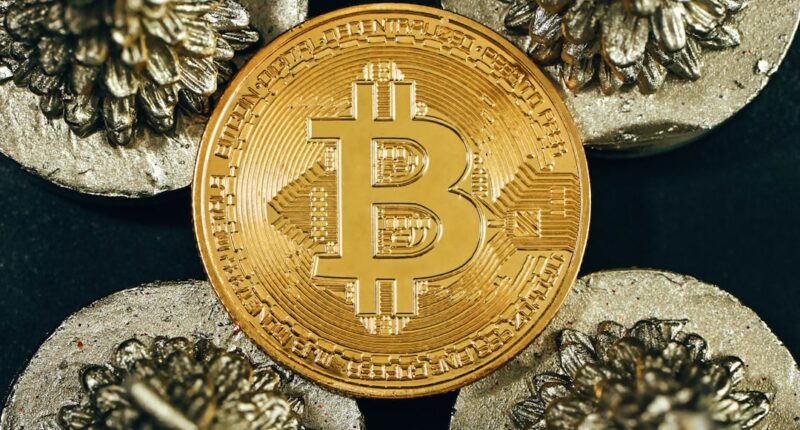Ethereum is a decentralized, open-source blockchain system that features smart contract functionality. It is the second-largest cryptocurrency platform by market capitalization, after Bitcoin. Ethereum’s native cryptocurrency, Ether (ETH), is used to compensate participants who perform computations and validate transactions. The Ethereum platform enables developers to build and deploy decentralized applications (dApps) and is widely used for creating and executing smart contracts. Ethereum was proposed in late 2013 by programmer Vitalik Buterin and development was crowdfunded in 2014, with the network going live on July 30, 2015.
Ethereum has gained significant attention and adoption due to its potential to revolutionize various industries through its smart contract capabilities. The platform has also been a key driver of the initial coin offering (ICO) trend, which has enabled numerous blockchain-based projects to raise funds through the issuance of their own tokens. With its innovative technology and growing ecosystem, Ethereum has become a major player in the cryptocurrency and blockchain space, with a wide range of potential use cases and applications.
Key Takeaways
- Ethereum’s price is subject to market news and can fluctuate significantly.
- Potential use cases for Ethereum include smart contracts, decentralized finance, and non-fungible tokens.
- Ethereum can be used to purchase a wide range of goods and services, including real estate, art, and digital collectibles.
- Real-world examples of purchases with Ethereum include luxury items, event tickets, and gaming assets.
- To use Ethereum for purchases, users need to have a digital wallet and access to platforms that accept Ethereum as payment.
- The future outlook for Ethereum is promising, with continued growth in decentralized applications and potential for mainstream adoption.
Ethereum Price and Market News
The price of Ethereum has experienced significant volatility since its inception, with periods of rapid growth and sharp declines. In recent years, Ethereum has seen substantial price increases, reaching an all-time high in May 2021. The price of Ethereum is influenced by various factors, including market demand, technological developments, regulatory news, and macroeconomic trends. As with other cryptocurrencies, Ethereum’s price is also impacted by market sentiment and speculative trading activity.
In addition to its price movements, Ethereum’s market news often includes updates on network upgrades, new dApps and projects being built on the platform, and partnerships with other companies or organizations. These developments can have a significant impact on Ethereum’s price and market dynamics. As the cryptocurrency market continues to evolve, Ethereum’s price and market news will remain important indicators of its growth and adoption.
Potential Use Cases for Ethereum
Ethereum has a wide range of potential use cases across various industries. One of the most prominent applications of Ethereum is in decentralized finance (DeFi), which encompasses a variety of financial services and applications built on the blockchain. DeFi platforms enable users to access lending, borrowing, trading, and other financial services without the need for traditional intermediaries such as banks. Ethereum’s smart contract functionality is a key enabler of DeFi, allowing for the automation and execution of complex financial transactions.
Another potential use case for Ethereum is in the creation and management of non-fungible tokens (NFTs). NFTs are unique digital assets that are stored on the blockchain, enabling ownership and provenance to be easily verified. Ethereum’s smart contract capabilities make it well-suited for creating and trading NFTs, which have gained popularity in the art, gaming, and entertainment industries. Additionally, Ethereum has potential applications in supply chain management, identity verification, voting systems, and more.
What Can You Buy with Ethereum?
| Item | Price in Ethereum |
|---|---|
| 1 Ethereum | 1 ETH |
| 0.1 grams of gold | 0.05 ETH |
| 1 year of web hosting | 0.02 ETH |
| 1 month of Netflix subscription | 0.005 ETH |
Ethereum can be used to purchase a wide range of goods and services, both online and in-person. Many online retailers and service providers accept Ethereum as a form of payment, including e-commerce platforms, travel agencies, gaming companies, and more. Additionally, some brick-and-mortar businesses also accept Ethereum payments through point-of-sale systems or cryptocurrency payment processors. As the adoption of cryptocurrencies continues to grow, the number of merchants accepting Ethereum is likely to increase.
In addition to purchasing goods and services directly with Ethereum, users can also use the cryptocurrency to access decentralized finance (DeFi) platforms. These platforms offer a variety of financial services, including lending, borrowing, trading, and earning interest on cryptocurrency holdings. By using Ethereum in DeFi applications, users can access financial services without relying on traditional banks or financial institutions.
Real-world Examples of Purchases with Ethereum
There are numerous real-world examples of purchases made with Ethereum across various industries. For example, some online retailers accept Ethereum as payment for a wide range of products, including electronics, clothing, and household goods. Travel agencies also allow customers to book flights, hotels, and vacation packages using Ethereum. Additionally, gaming companies often accept Ethereum for in-game purchases or as payment for digital assets.
In the art world, NFTs have become a popular way for artists to sell digital artwork using Ethereum. These unique digital assets are bought and sold on NFT marketplaces using Ethereum as the primary form of payment. NFTs have also been used to tokenize real-world assets such as real estate and luxury goods, enabling fractional ownership and trading on the blockchain.
How to Use Ethereum for Purchases

Using Ethereum for purchases is relatively straightforward for those familiar with cryptocurrency transactions. To make a purchase with Ethereum, users need to have a digital wallet that supports Ether (ETH) and know the recipient’s wallet address. Once the transaction details are confirmed, users can send the desired amount of Ether from their wallet to the recipient’s wallet address. The transaction will then be recorded on the Ethereum blockchain and confirmed by network validators.
For online purchases, many e-commerce platforms have integrated cryptocurrency payment gateways that allow users to pay with Ethereum at checkout. Users simply select Ethereum as their payment method and follow the prompts to complete the transaction. In some cases, users may also be able to use cryptocurrency debit cards or payment apps that support Ethereum for in-person purchases at retail stores or restaurants.
Conclusion and Future Outlook for Ethereum
In conclusion, Ethereum has established itself as a leading blockchain platform with a wide range of potential use cases and applications. From decentralized finance to non-fungible tokens and beyond, Ethereum’s smart contract functionality enables innovative solutions across various industries. As the adoption of cryptocurrencies continues to grow, the potential for using Ethereum for purchases and accessing decentralized applications will likely expand.
Looking ahead, the future outlook for Ethereum remains promising as the platform continues to evolve and attract new users and developers. With ongoing network upgrades such as Ethereum 2.0 and continued innovation in DeFi and NFTs, Ethereum is well-positioned to remain a key player in the cryptocurrency and blockchain space. As regulatory clarity improves and mainstream adoption increases, Ethereum’s potential for real-world use cases and purchases is likely to continue expanding.
Sure, here’s a paragraph that mentions a related article and includes a link:
“Curious about the latest developments in the world of Ethereum? Look no further than ETH News. From updates on what you can buy with Ethereum to insightful articles on the potential of blockchain technology, ETH News has you covered. For example, check out their article “Hello World: A Beginner’s Guide to Ethereum” for a comprehensive introduction to this revolutionary platform.”
FAQs
What is Ethereum?
Ethereum is a decentralized platform that enables developers to build and deploy smart contracts and decentralized applications (DApps). It is powered by its native cryptocurrency, Ether (ETH).
What can you buy with Ethereum?
You can buy a variety of goods and services with Ethereum, including but not limited to, digital art, collectibles, domain names, virtual real estate, decentralized finance (DeFi) products, and even some physical goods from merchants that accept cryptocurrency payments.
Where can you use Ethereum to make purchases?
You can use Ethereum to make purchases on various online platforms, including marketplaces that specialize in NFTs (non-fungible tokens), decentralized exchanges, and merchants that accept cryptocurrency payments. Additionally, some brick-and-mortar stores also accept Ethereum as a form of payment.
Is it safe to buy with Ethereum?
Using Ethereum to make purchases can be safe if you take the necessary precautions, such as ensuring that you are transacting with reputable sellers and using secure payment methods. It’s important to be aware of potential scams and to verify the legitimacy of the products or services you are purchasing.
Can you convert Ethereum to traditional currency to make purchases?
Yes, you can convert Ethereum to traditional currency (such as USD or EUR) on cryptocurrency exchanges and then use the converted funds to make purchases. Many merchants and service providers also offer the option to directly accept Ethereum as payment.





